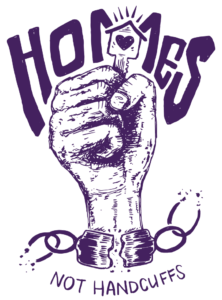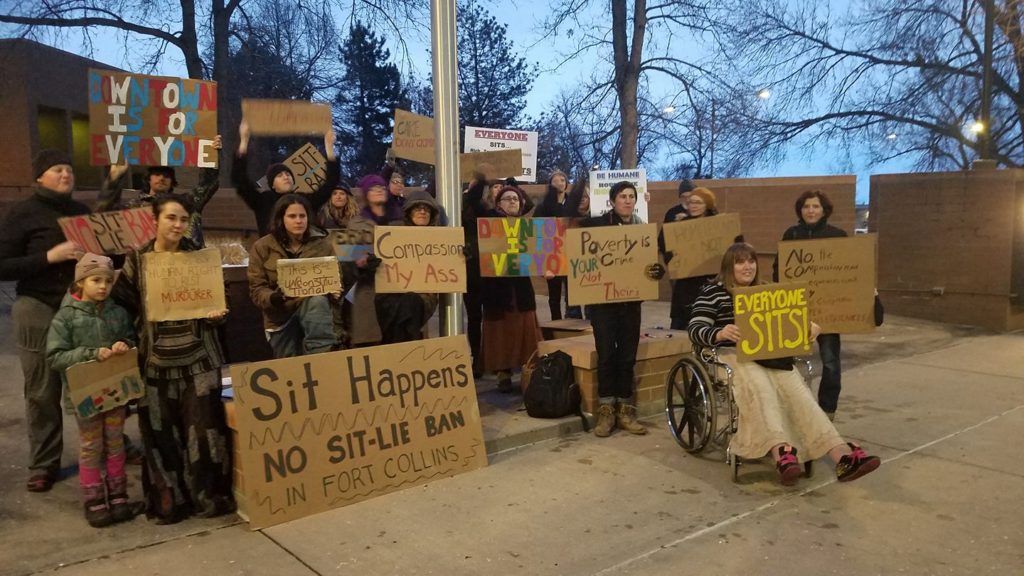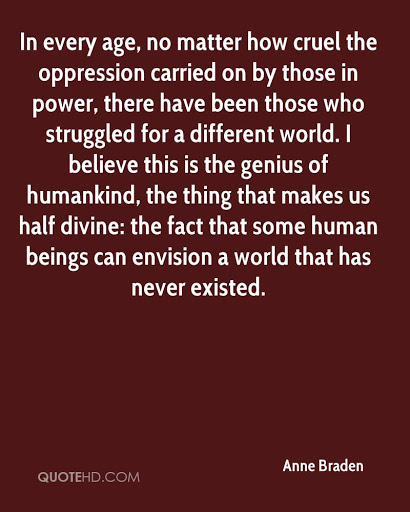Since 2014, the Fort Collins Homeless Coalition (FCHC) has been standing up for dignity, rights, and housing. We work with and for people experiencing homelessness, on issues and injustices that are raised & affirmed by people who are homeless. Our power comes from organizing, mobilizing, and acting collectively — by working together, we fight to build a better world.
About FCHC

The Fort Collins Homeless Coalition (FCHC) works with and for people who experience homelessness, to address the issues that arise from the experience of homelessness. We work to protect and advocate for dignity, rights, and choices for people experiencing homelessness. We create space for solutions and we effect change in our community. We fight the criminalization of poverty and homelessness. We commit our efforts toward goals affirmed and raised by people who are homeless. We strive to add our strengths together to create ways of living in which everyone has a place they can call home.
Over the years, our group has sometimes been very large and sometimes very small. Because our members are diverse and ever- changing, FCHC has focused on many projects over time, including fighting for housing, 24/7 bathroom access, storage lockers, warming centers, winter emergency shelters, better treatment in shelters, year- round public drinking water, Sunday bus service, and dignity throughout our community. We have worked on state-wide Right to Rest legislation, have helped kill several different sit/lie bans, and continue to oppose the criminalization of homelessness at every turn.
Contact Us: 970.419.8944, info@fccan.org

FCHC and community at a 2017 Sit-Lie Ban Protest
History of the Fort Collins Homeless Coalition
On a single night in May 2014, the Fort Collins police issued 32 camping tickets during a sweep. Mass-ticketing events like this are designed to intimidate and harass, but this time, it spurred a corresponding increase in outspoken concern from within the homeless community and beyond.
In June 2014, a group began to meet to share concerns, identify issues, and discuss strategies for trying to build a better world. People experiencing homelessness identified several major concerns: the criminalization of homelessness, the lack of basic necessities (such as year-round drinking water, 24 hr public bathrooms, and large storage lockers), the need for affordable housing, and the stigma and prejudice experienced in Fort Collins by unhoused people.
Meanwhile, the City of Fort Collins was listening to the voices of downtown business owners who claim to find panhandling ‘disruptive.’ The City proposed a “care meters” program. ” “Care meters” attempt to stop people from giving money to people who are asking for help, and have been badly misused in many cities. Early members of the emerging Homeless Coalition expressed concerns, succeeding in shutting down the Care Meter proposal and eventually leading to the resignation of the City’s problematic Director of Social Sustainability. In spite of these small initial successes, Fort Collins police continue their policies of large-scale sweeps.
By the end of 2014, the weekly group had officially named itself the Fort Collins Homeless Coalition (FCHC), and had gained nonprofit status by becoming an affiliate of the Fort Collins Community Action Network (FCCAN). Despite these formal-sounding titles, the group has always been grassroots and ever-evolving, always including people who care deeply about injustice and have direct experience with its manifestations, and also accountable to the many people who attend our meetings who wish someone would help them survive the coming week.
Some key events over the past five years.
In 2015, FCHC:
- worked with the ACLU of Colorado to find plaintiffs for a lawsuit challenging Fort Collins’ problematic panhandling ordinance. The ordinance was eventually struck down.
- started the first Warming Center in Fort Collins. Initially, the Fort Collins Mennonite Fellowship allowed us to use their church from 5-10pm on Friday nights to help address the life-threatening lack of warm places for people to be inside during evenings. We used this as an organizing space, as well as serving meals to hundreds of people, offering showers, and more.
- traveled to Denver to testify before a state legislative committee about the Homeless Bill of Rights (which failed to make it out of committee)
- joined other houseless advocates in demanding that the City stop ticketing people for resting, sleeping, and camping in public spaces, on private property with the permission of the property-owner, and in legally-parked vehicles.
- an organization named “Serve 6.8” took over operation of the Murphy Center, and immediately destroyed a storage pod of personal belongings, trashing the possessions of 58 people. FCHC organized with affected people to denounce this brutal action and to help them seek restitution. Under pressure, Serve 6.8 eventually stepped away from (mis)managing the Murphy Center.
- provided input into the City’s abandoned property ordinance, successfully helping to re-write the ordinance to give more protection for people whose property is being seized.
- attended the Western Regional Advocacy Project’s annual conference on homeless rights
- Opposed the City Manager’s Office in its first attempt to create a new sit-lie ban in Fort Collins. Thanks to FCHC efforts, City Council decided not to pursue the sit-lie ban at that time.
- opposed the sale and redevelopment of Jefferson Park
- Supported the efforts of protesters who set up a camp in Jefferson Park, calling themselves “Occupy Jefferson Park.” The police eventually committed a series of overnight ticketing/arrests to shut down the protests.
In 2016, FCHC:
- supported several other churches in starting weekend Warming Centers to ensure warmth and safety during more evenings
- did significant community outreach around the camping ban (and proposed revisions). We held meetings with City council members & City departments, gave presentations to boards & commissions, churches and non-profits, and more.
- Mourned the death of local man, and FCHC member, Doug Shields, who died of exposure & hypothermia on a bitterly cold night after being turned away from Catholic Charities shelter. We shared our sorrow and outrage where we could, and continued fighting to reform shelters, ensure adequate warming centers, and expand winter shelter options. We miss Doug.
- After months of sustained organizing from FCHC and from people who stay in shelters, the City announced a plan to coordinate “severe winter weather protocols” so that no one will be turned away during seriously cold weather. City also agreed to fund sufficient women’s shelter beds year-round, not just in winter.
- traveled to Denver to testify before a state legislative committee about the 2016 Right to Rest Bill (which did not make it out of committee)
- won a “Green Giant” award for community organizing from the Green Party
- saw the homeowners of the Library Park neighborhood hold a “concerned citizens meeting” at Old Town Library to talk about what they term “transients.” Several attendees demonstrated extreme hostility toward homeless people, making suggestions such as forcibly transporting people out of town ‘in boxcars.’ Although cops and several City Councilmembers are in attendance, these supposed community leaders say nothing against the prejudice on display.
- organized with people who stay at Catholic Charities to get check-in times moved 15 minutes later, so that men who eat at Rescue Mission would have time to eat AND stand in lottery line. Over a hundred people signed a petition, which was eventually successful.
- joined the “Sunday Service NOW” coalition, which successfully lobbied the City to expand TransFort services to 7 days a week.
In 2017, FCHC:
- handed off the Friday Night warming center to the FC Mennonite Fellowship, which continued to operate it with the support of other community organizations (including FoCo DSA and others)
- opposed a Sit-Lie Ban that would have made it illegal to sit on a bench for longer than one hour; to sit, kneel, or lie throughout wide swaths of downtown; or to have “too many” personal possessions (all things likely to be enforced mainly against people experiencing homelessness). Thanks to FCHC organizing, hundreds of people in our community stand up to oppose the sit lie ban, and are successful in blocking the proposed law.
- traveled to Denver to testify before the state legislative committee about the 2017 Right to Rest Bill (which did not make it out of committee)
- began to work with the City on a new lockers project, with the FC Mennonite Fellowship eventually stepping up as the managing partner. The City initially supported the lockers, but went on to break trust with our community.
- opposed the City’s re-write of Fort Collins’ obstruction ordinance to include more sit-lie language. The City eventually passed the ordinance, marking a defeat for FCHC and all who fought alongside us
- opposed the creation of Fort Collins’ first Business Improvement District (BID) in Midtown. The Midtown BID was formed despite ample evidence that BIDs usually serve as ‘Homeless Exclusion Zones.’
In 2018, FCHC:
- worked with the Fort Collins Parks Department to install the first public year-round hydration station at Oak St. Plaza. This is Fort Collins’ first year-round public source of drinking water, and eventually became the only public drinking station to remain available during the Covid pandemic.
- provided extensive organizing and support for the Fort Collins Mennonite Fellowship in the fight to install a small number of lockers for people experiencing homelessness. Some home-owners in the Library Park neighborhood prove to be among the loudest voices against this project, and the City repeatedly withheld support from lockers despite the deeply concerning prejudice displayed. After a year-long fight, including a drawn-out legal process, the church won the right to open lockers on its property.
- traveled to Denver to support the 2018 Right to Rest Act. The R2R Act did not make it out of committee, but the support for it was stronger than ever. Every year, more voices cry out for justice. We will keep fighting for our right to survive.
- organized support for the City to fund extended hours at the Murphy Center so that people would have a reliable place to be safe indoors on weeknights. The measure is funded.
- supported a budget bid for creating public bathrooms at TransFort stops. Although the bid does not make it into the budget, we believe this remains necessary in our community
In 2019, FCHC:
- was supported by the Denver Gay Men’s Chorus, who performed their Street Requiem, a beautiful choral work that pays homage to those who live and have died on the streets.
- launched a ‘praxis’ study group to enhance and reflect on our organizing strategies and critical analysis
- held a series of Rallies for Food Justice after Fort Collins police shut down a community picnic. Food Not Bombs had been sharing a meal with people experiencing homelessness in Library Park for two years, when a “concerned neighbor” called the police to complain. The police shut down the event, sparking a storm of community outrage. Food is a right, not a privilege, and humanitarian aid should never be criminalized.
- launched a community-wide campaign to protest the expansion of the Larimer County Jail. In spite of consistent, large-scale organizing, the County Commissioners were dismissive of community concerns and voted to vastly expand the jail.
- learned to screen-print so we could make our own t-shirts
In 2020, FCHC:
- made a series of recommendations to City, County, and State governments regarding Covid emergency measures and homelessness
- filed legal action against the State of Colorado, demanding that Governor Polis use his emergency powers to provide housing to all during the pandemic
- built and installed a public hand-washing station on Willow St.
- threw together a spring gear drive to help people survive a later winter storm
- opposed the shut-down of the Heritage Park encampment, which was conducted in defiance of CDC guidelines to not disrupt encampments during this pandemic
- opposed the closure of the NACC emergency shelter, which City Council voted to close despite knowing that hundreds of people would have no place to be inside, day and night, during this pandemic
- …is working on a fall gear drive
- …is continuing to insist that our community implement an emergency preparedness plan that includes homeless, marginalized, and incarcerated people, and we need universal housing for all.
